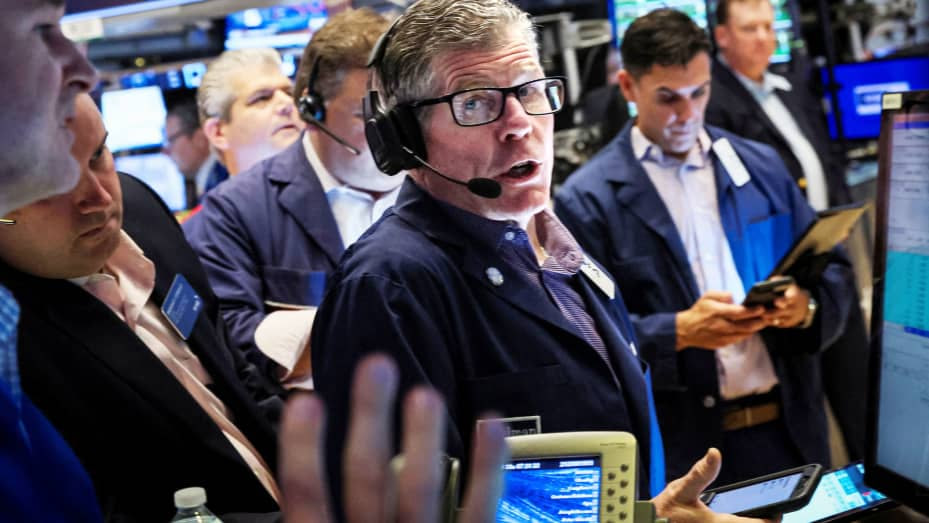Xi Jinping's Kazan Trip: A Deep Dive into BRICS and Geopolitics
Meta Description: Xi Jinping’s visit to Kazan for the 16th BRICS Summit – analyzing the geopolitical implications, economic collaborations, and potential outcomes for China, Russia, and the global landscape. Explore the key themes, challenges, and opportunities surrounding this crucial summit. #XiJinping #BRICS #KazanSummit #Geopolitics #China #Russia #InternationalRelations #GlobalEconomy
Imagine this: The world watches with bated breath. Not for a Hollywood blockbuster premiere, but for a pivotal moment in global geopolitics. President Xi Jinping's journey to Kazan, Russia, for the 16th BRICS Summit isn't just a diplomatic trip; it's a chess match played on a global scale. The stakes are high: economic power shifts, evolving alliances, and the future trajectory of a multipolar world. This isn't your average news report; we're peeling back the layers to reveal the intricate machinations, unspoken strategies, and potential ramifications of this high-stakes summit. We'll delve into the historical context of BRICS, dissect the current geopolitical landscape, and explore the myriad of challenges and opportunities that lie ahead for China, Russia, and the broader global community. Forget dry, factual reporting; prepare for an insightful, engaging journey into the heart of international relations, where geopolitical maneuvering meets economic strategy, and the future of the world hangs in the balance. We'll unpack the nuances of Sino-Russian relations, explore the potential for expanded trade agreements, and analyze the implications for global governance. Get ready to unpack the complexities and understand the significance of Xi Jinping's trip to Kazan – it's not just a meeting; it's a turning point. This isn't just another news story; it’s a strategic deep dive into the future.
BRICS Summit in Kazan: A New Era of Global Cooperation?
The 16th BRICS Summit, hosted in the vibrant city of Kazan, Russia, marks a significant juncture in global affairs. More than just a meeting of leaders from Brazil, Russia, India, China, and South Africa (BRICS), it represents a potential shift in the global power balance, a reimagining of international cooperation, and a challenging of the established Western-centric order. President Xi Jinping's participation is particularly crucial, given China's significant economic influence and its increasingly assertive foreign policy. This summit is not merely a photo opportunity; it's a platform for forging new alliances, negotiating trade deals, and shaping the future of global governance.
The choice of Kazan as the host city is far from arbitrary. Situated in the heart of Russia, Kazan offers a symbolic backdrop, highlighting the deepening relationship between Russia and China. The city's rich history and cultural diversity reflect the diverse makeup of the BRICS nations themselves, emphasizing the potential for inclusive global cooperation. However, underlying this apparent unity are complex geopolitical dynamics and competing national interests. This presents both challenges and opportunities for the BRICS nations to navigate.
The Geopolitical Landscape: Navigating Shifting Sands
The BRICS nations find themselves operating within a complex geopolitical landscape characterized by:
-
The Rise of Multipolarity: The traditional unipolar world order is undeniably waning, making way for a multipolar system where various power centers exert influence. BRICS represents a key element in this shift, offering an alternative to Western-dominated institutions.
-
US-China Relations: The ongoing tensions between the United States and China cast a long shadow over the summit. The competition for global influence and economic dominance profoundly impacts the discussions and decisions made within the BRICS framework.
-
Russia's War in Ukraine: The ongoing conflict in Ukraine presents a significant challenge to the BRICS alliance. The differing stances of member states on the conflict—particularly the strong ties between Russia and China—could strain the unity and effectiveness of the group.
-
Economic Uncertainty: Global economic uncertainty stemming from inflation, supply chain disruptions, and potential recessions adds another layer of complexity. The BRICS nations must address these challenges to strengthen their collective economic resilience.
This complex interplay of factors necessitates a nuanced understanding of the summit's implications. It's not simply about economic cooperation; it's about navigating a shifting geopolitical landscape toward a more equitable and multipolar world order.
Economic Collaboration: Beyond the Headlines
While geopolitical considerations dominate the headlines, the economic dimensions of the summit are equally critical. The BRICS nations seek to enhance economic collaboration through:
-
Enhanced Trade and Investment: Strengthening trade ties and fostering increased investment among BRICS member states is a key objective. This includes exploring new trade routes, reducing tariff barriers, and promoting investment in infrastructure projects.
-
New Development Bank (NDB): The NDB, established by BRICS nations, plays a vital role in providing alternative funding for infrastructure and sustainable development projects, reducing reliance on Western-dominated financial institutions.
-
Local Currency Settlements: Moving away from reliance on the US dollar for trade transactions is a growing focus. This aims to reduce the influence of Western sanctions and enhance the financial autonomy of BRICS nations.
These initiatives aim to create a more robust and resilient economic framework that benefits all member states. However, navigating differing economic priorities and development stages within the BRICS group requires careful coordination and compromise.
Expanding BRICS: Invitation and Implications
The potential expansion of BRICS is a significant theme. Many nations have expressed interest in joining, reflecting the growing appeal of the group as an alternative platform for international cooperation. This expansion could reshape the group's dynamics, adding new perspectives and potentially altering the balance of power within the alliance. However, careful consideration of compatibility of goals and values is crucial to ensure sustained unity and effectiveness.
Challenges and Opportunities: A Balancing Act
The BRICS summit presents a unique set of challenges and opportunities:
| Challenge | Opportunity |
|------------------------------|----------------------------------------------------------|
| Geopolitical Divergences | Enhanced multilateral cooperation and diplomacy |
| Economic Disparities | Shared economic growth and development |
| Institutional Capacity | Strengthened BRICS institutions and decision-making processes |
| Internal Conflicts | Fostering mutual understanding and conflict resolution |
Successfully navigating these challenges is crucial for realizing the opportunities presented by the BRICS framework. This requires strong leadership, effective communication, and a commitment to finding common ground.
Frequently Asked Questions (FAQs)
-
What is the primary goal of the BRICS Summit in Kazan? The primary goal is to strengthen cooperation among BRICS nations on economic, political, and security issues, particularly in the face of a changing global landscape.
-
What are the key economic initiatives being discussed? Key initiatives include enhancing trade and investment, promoting the New Development Bank, and exploring local currency settlements to reduce reliance on the US dollar.
-
How will the expansion of BRICS impact the group's dynamics? Expansion could bring new perspectives and resources but also requires careful management to avoid internal conflicts and maintain the group's coherence.
-
What is the significance of Xi Jinping's presence at the summit? Xi Jinping's presence reflects the importance of the Sino-Russian relationship and China's growing role in shaping the global order.
-
What are the potential risks associated with BRICS expansion? Potential risks include differing national interests, potential for internal conflicts, and difficulties in maintaining a cohesive and effective decision-making process.
-
What is the long-term vision for BRICS? The long-term vision is to create a more equitable and multipolar world order, where BRICS nations play a leading role in shaping global governance and economic development.
Conclusion: A Pivotal Moment
Xi Jinping's trip to Kazan for the 16th BRICS Summit is more than just a diplomatic visit; it's a pivotal moment in the ongoing reshaping of the global order. The summit’s outcomes will have far-reaching implications for international relations, economic cooperation, and the future of multilateralism. Navigating the challenges and seizing the opportunities presented by this dynamic alliance will be crucial in shaping a future that is both prosperous and equitable for all. The world is watching, and the decisions made in Kazan will reverberate across the globe for years to come. The future, quite literally, hangs in the balance.



